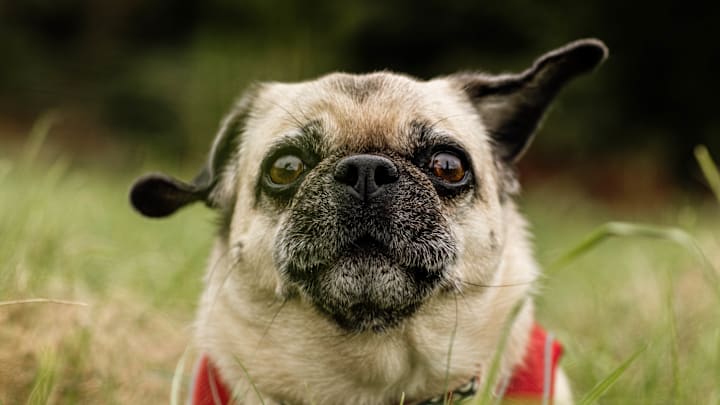Strolling through the woods with your best furry friend can seem like a great idea … at first. Dogs adore rolling around in nature—but no one wants to spot them having a field day in those infamous shiny, three-leaved plants. While dogs can get poison ivy, their reaction to it can actually be a bit more complicated than you might think.
- What to Do After Your Dog Gets Into Poison Ivy
- Is eating poison ivy bad for dogs?
- Can cats get poison ivy?
What to Do After Your Dog Gets Into Poison Ivy
The most important thing to do is stay calm. Though your dog may contract a rash after touching poison ivy, their fur is actually a great form of protection. If your pet is a breed with a thick coat, like a Labrador retriever, that alone may be enough of a protective barrier; those with thinner coats have a higher chance of contracting a rash.
Make sure you don’t make contact with your dog’s fur after they roll in poison ivy. Unlike them, you don’t have a protective coat of fur. Get your pup inside and into the bath ASAP. Wear gloves while giving them a good cleaning, and try using a pet-safe shampoo with anti-inflammatory ingredients like oatmeal. Be sure to throw all towels or clothing that might have come into contact with the plant’s oil into the wash to remove any remaining residue.
Is eating poison ivy bad for dogs?
This is a bit trickier. The good news is that there’s a strong chance that the worst that will happen if your dog eats poison ivy is that they’ll develop a bit of an upset stomach. The bad news is that this isn’t the only possible outcome, so you should always call your vet to be safe.

A dog who happens to be severely allergic to poison ivy could go into anaphylactic shock or have trouble breathing after eating it. If you notice they’re heaving, vomiting, or having diarrhea, this means that you should quickly seek veterinary attention.
Can cats get poison ivy?
It’s also important to pay attention to your outdoor cats (though, ideally, cats will be kept indoors for their safety and the safety of the local wildlife). They have just as good of a chance of getting into troublesome plants as your pooch, and can transfer those oils to you just as easily. If you notice your kitty hanging around a patch of poison ivy, clean them off as you would a dog—though, unfortunately, they probably won’t take to the bath as kindly as Fido.
Read More About Pets Here:
Have you got a Big Question you'd like us to answer? If so, let us know by emailing us at bigquestions@mentalfloss.com.
